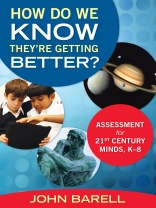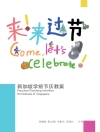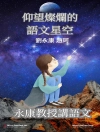Boost your students′ 21st century skills
How do we measure students′ inquiry, problem-solving, and critical thinking abilities so that we know they are prepared to meet the challenges of the 21st century? John Barell explains how inquiry leads to problem-solving and provides specific steps for pre, formative and summative assessment that informs instruction of 21st century skills. Included are examples that show how to use today′s technology in the classroom and how to use inquiry to develop and assess students′ ability to:
- Think critically and creatively
- Collaborate with others
- Become self-directed learners
- Adapt and become resourceful
- Develop a sense of leadership, responsibility, and global awareness
The authors challenge teachers to reflect on their own learning, thinking, and problem-solving processes as well as those of their students. The text provides frameworks for monitoring students′ progress and guidelines for communicating with parents. Teachers will find examples from all grade levels that show how to observe and assess students′ growth in their development of 21st century capacities, making this a timely and valuable resource.
Tabla de materias
Appreciations
About the Author
Introduction
1. An Overview
2. Teacher Modeling
3. Creating the Invitation-to-Risk Environment
4. Curriculum for the 21st Century
5. Preassessments
6. Formative Assessments: Gathering a ‘Wealth of Information’
7. From Stories to Powerful Questions
8. ‘My Inquiry Skills Shot Through the Roof!’
9. ‘STEM Changed My Life!’
10. ‘Cookie-Cutter A’ Becomes Self-Directed Student
11. Inquiry Begins at Home
12. After Action Reviews
Index
Sobre el autor
Learn more about John Barell′s PD offerings John Barell is Professor Emeritus of Curriculum and Teaching at Montclair State University, Montclair, NJ, and former public school teacher in New York City. For the past several years he has been a consultant for inquiry-based instruction and creation of science/social studies networks at the American Museum of Natural History in New York City. For most of his educational career he has worked with schools nationally to foster inquiry, problem-based learning, critical thinking, and reflection. Barell is the author of several books, including Teaching for Thoughtfulness: Strategies to Enhance Intellectual Development (1995, 2nd ed.) and Developing More Curious Minds (2003).












